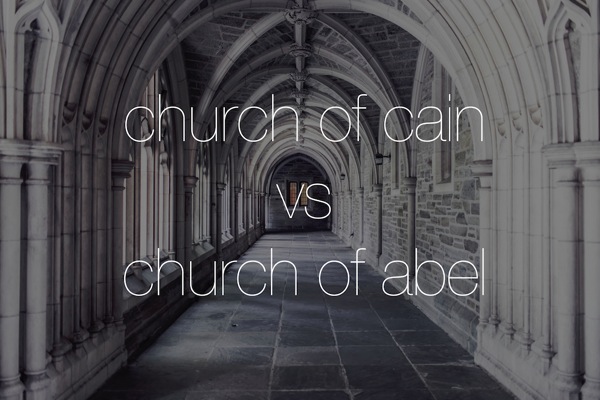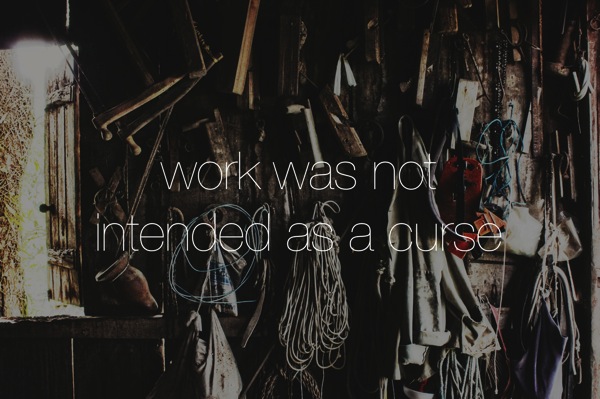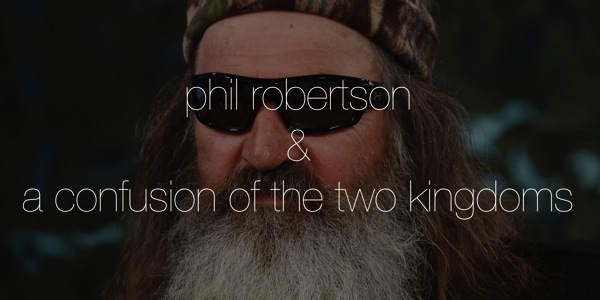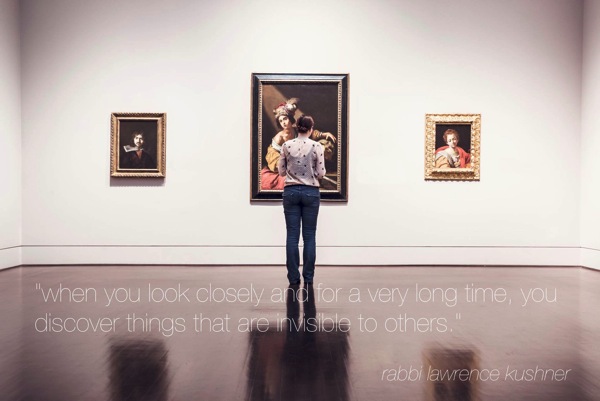 Paul writes in Timothy, "For the time is coming when people will not endure sound teaching, but having itching ears they will accumulate for themselves teachers to suit their own passions.” Another translation translates sound teaching as “healthy doctrine.”
Paul writes in Timothy, "For the time is coming when people will not endure sound teaching, but having itching ears they will accumulate for themselves teachers to suit their own passions.” Another translation translates sound teaching as “healthy doctrine.”
A time is coming when people will not endure healthy doctrine.
There’s a doctrine, or teaching, that is healthy. And then there’s one that isn’t healthy. There’s the stuff that’s good for you and feeds your soul. And there’s the stuff that just makes you fat, lazy, and on the verge of a heart attack.
You are what you eat.
This is easily understood when we talk about our food. There’s certain foods that are good for you and need to be a part of a well-balanced diet. There’s other food that isn’t as good for you but won’t necessarily kill you unless you eat too much of it. And then there’s junk food which really has no nutritional value, but it sure tastes good. And then of course, there’s food that’s poisonous and will absolutely kill you.
Teaching should be considered the same way.
Healthy.
Healthy doctrine is simple; it’s correct teaching. This is what Paul is referring to when he suggests that people “will not endure sound teaching.” Paul understands that there is a time when people aren’t going to find the healthy stuff very appealing; it may be exactly what people need for life, but they won’t have the appetite for it.
Our people need a healthy dose of the law, they need to be reminded what the will of God looks like. And they need the life-giving Gospel, which puts their hope in the finished work of Christ. People need the true and healthy teachings of the Scriptures because they keep us healthy as we fulfill our callings as believers, as workers, and as family members.
Less Healthy.
Some food isn’t really healthy, but it isn’t going to kill you either. You can eat a burger and it’s not awful, but if you only eat burgers it will kill you. Some teachings are like this.
You go to that conference and learn from the rockstar pastor who is selling all kinds of books. His teachings might not be in complete agreement with yours. Too much buying into everything he says will probably eat away at your soul, but enjoying the good teaching of another pastor from another tribe is sometimes helpful. It will help you think in a way you haven’t before and it will challenge you think about why you believe what you believe.
Junk Food.
So the healthy needs to be a part of your diet, the less healthy food will be part of your diet but cautiously. And then there’s junk food. We all love the junk food, but know that we have to be careful. The junk food is fun, but it is bad for us.
I could easily eat my sons entire bag of Halloween candy, and I will eat a lot of it. But it’s definitely not good for me.
Some teaching is like this. It’s not only less than healthy, it’s definitely bad for you. Because it’s junk food and not poison, it’s not completely off limits… but you have to know what works for you. If one candy bar will send you spiraling towards a heart attack, then you need to stay away from even one. But if a Snickers once and a while isn’t a big deal, then go for it.
I’d compare the junk food in doctrine to the teachings that you know are not only in disagreement, but the ones that disagree significantly with you. But even though they disagree, you find something fascinating or compelling about them that makes you want to listen every know and then.
Poison.
Poison kills. A little bit of poison will kill you, a lot of poison will kill you. So if we are talking food, I don’t find many people that are suggesting that we are just cautious to only eat poisonous foods once a year. We don’t ever eat poisonous food… because we will die no matter how healthy we were.
Certain doctrine is poisonous. There are teachings that are wrong and dangerous and that we should not give ourselves to. There are false teachers that disguise themselves and teach people what they want to hear all the while feeding them poison on a silver platter.
The poison is what we must absolutely avoid at all costs. As pastors and preachers, we might need to study and learn the poison so we can protect our people from it, but we must also do whatever we can to make sure people know how to discern and avoid the poison.

 It does take much living to realize that
It does take much living to realize that You are a missionary. As a Christian, part of your calling as a disciple is a mission assignment. You are given a mission to be a missionary in the places that God has placed you. Charles Spurgeon actually suggested, "Every Christian is either a missionary or an impostor."
You are a missionary. As a Christian, part of your calling as a disciple is a mission assignment. You are given a mission to be a missionary in the places that God has placed you. Charles Spurgeon actually suggested, "Every Christian is either a missionary or an impostor." When we are little we are asked, “What do you want to be when you grow up?” And rightfully so, we are encouraged in whatever that might be, whether that be a dream to become a famous movie star, a successful athlete, and entrepreneur, or a police officer.
When we are little we are asked, “What do you want to be when you grow up?” And rightfully so, we are encouraged in whatever that might be, whether that be a dream to become a famous movie star, a successful athlete, and entrepreneur, or a police officer. Change often starts in the fringes with an oddball group that doesn’t quite fit with everybody else. It starts with a passion and an idealism that believes things can be better than they currently are.
Change often starts in the fringes with an oddball group that doesn’t quite fit with everybody else. It starts with a passion and an idealism that believes things can be better than they currently are. Two men. Two different jobs. Two different offerings. The story of Cain and Abel is the story of the first dysfunctional family; two brothers come before God making offerings and find God responding in two very different ways.
Two men. Two different jobs. Two different offerings. The story of Cain and Abel is the story of the first dysfunctional family; two brothers come before God making offerings and find God responding in two very different ways. Tacos are awesome. A great deal on a new pair of shoes is awesome. Blog posts are awesome. Saving money on your car insurance, awesome. I recently watched a
Tacos are awesome. A great deal on a new pair of shoes is awesome. Blog posts are awesome. Saving money on your car insurance, awesome. I recently watched a  Do you ever have one of those days? Those days were work just seems to drag on. The day where the TPS reports are killing you and your sick of being told you have a “case of the mondays.” I’m not sure there is such a thing as a job where you don’t have those days.
Do you ever have one of those days? Those days were work just seems to drag on. The day where the TPS reports are killing you and your sick of being told you have a “case of the mondays.” I’m not sure there is such a thing as a job where you don’t have those days. Every week, I start out my work by creating a checklist. I live and die by the checklist; without it I am pretty sure I wouldn't get anything done. A lot of us also operate our lives around our checklists. And not only do we use these lists to guide our decision-making, but many of us rely on our checklists to be our source of worth and validation.
Every week, I start out my work by creating a checklist. I live and die by the checklist; without it I am pretty sure I wouldn't get anything done. A lot of us also operate our lives around our checklists. And not only do we use these lists to guide our decision-making, but many of us rely on our checklists to be our source of worth and validation. Fantasy football is good for the soul. Well, it is good for my soul at least. For the past few years I have joined the world of grown men (and women) gathering together and building fictional teams, watching football, and following stats as though they actually were coaches of real teams.
Fantasy football is good for the soul. Well, it is good for my soul at least. For the past few years I have joined the world of grown men (and women) gathering together and building fictional teams, watching football, and following stats as though they actually were coaches of real teams. Often when I think about wanting to share my faith with unbelievers, I wallow in doubt and questioning about what I should or shouldn’t say. My fear of how this person will respond often paralyzes my mission.
Often when I think about wanting to share my faith with unbelievers, I wallow in doubt and questioning about what I should or shouldn’t say. My fear of how this person will respond often paralyzes my mission. Duck Dynasty star, Phil Robertson,
Duck Dynasty star, Phil Robertson,  Vocation is a word that will occasionally get thrown around in our current culture, but it is also one that has lost the significance of its meaning.
Vocation is a word that will occasionally get thrown around in our current culture, but it is also one that has lost the significance of its meaning.  Vocation is the forgotten doctrine of the Reformation. Justification was & is central, but vocation has been lost & emasculated since then. In Luther’s day, just like our own, people had a misunderstanding in how God’s calling worked and the way that God was at work in his people.
Vocation is the forgotten doctrine of the Reformation. Justification was & is central, but vocation has been lost & emasculated since then. In Luther’s day, just like our own, people had a misunderstanding in how God’s calling worked and the way that God was at work in his people. A family member dies. A diagnosis gets made. Lay-offs happen. A close friend goes through a divorce. A natural disaster strikes.
A family member dies. A diagnosis gets made. Lay-offs happen. A close friend goes through a divorce. A natural disaster strikes.